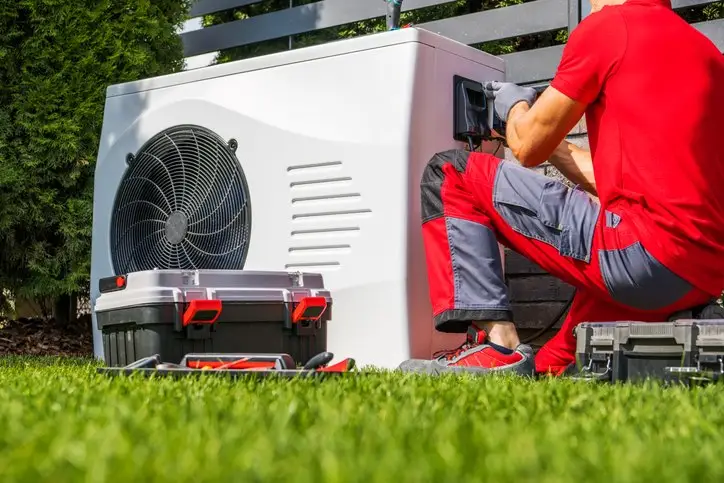What is a Heat Pump?
Are you looking for an innovative, cost-effective way to keep your home cozy in the winter and cool in the summer? A heat pump might just be the answer you’re looking for. This versatile HVAC system has been gaining popularity across Canada thanks to its eco-friendliness and recent improvements in cold-climate performance. Whether you’re considering upgrading your home’s heating and cooling system or simply want to know more, learning about heat pumps is a great place to start.

What is a Heat Pump, and How Does it Work?
A heat pump is essentially a two-way air conditioner. Unlike traditional heating systems that generate heat, heat pumps move warm air from one place to another. In the winter, they extract warmth from outside air or the ground and bring it indoors. In the summer, the process reverses, removing heat from your home to keep it cool.
Take a look at how the most important heat pump components work together:
- The compressor is the heart of the heat pump, circulating refrigerant between the indoor and outdoor units. The compressor increases the pressure of the refrigerant to raise its temperature.
- The condenser, located in the outdoor unit, releases the heat absorbed from indoors during the cooling cycle or from the outside air during the heating cycle. As the refrigerant releases heat, it condenses back into a liquid form.
- The expansion valve reduces the pressure of the refrigerant, cooling it down before it enters the evaporator. It acts as a regulator, controlling the amount of refrigerant flowing into the evaporator.
- The evaporator, found in the indoor unit, absorbs heat from indoors during the cooling cycle or from the outdoor air during the heating cycle. As the refrigerant absorbs heat, it evaporates into a gas and returns to the compressor to restart the cycle.
- The reversing valve changes the direction of the refrigerant flow, allowing the heat pump to switch between heating and cooling modes depending on the season.
- The thermostat is the system’s control center, monitoring the indoor temperature and signaling the heat pump to start heating or cooling to maintain the desired comfort level.
Types of Heat Pumps
Heat pumps come in three primary forms:
- Air-source heat pumps are the most common in residential settings. They transfer heat between the air inside your home and the air outside, offering an efficient heating and cooling solution that reduces electricity use by about 65 percent compared to baseboard heaters and electric furnaces. They work exceptionally well in moderate climates but have improved designs to perform in colder regions, too.
- Ductless mini-splits are ideal for homes without existing ductwork. They offer individual zone control, allowing you to heat or cool a single room at a time. Their compact size and flexible placement options make them popular for retrofitting older homes or adding to new additions.
- Geothermal heat pumps, also known as ground-source heat pumps, leverage the earth’s constant temperature to heat and cool buildings more efficiently than any other HVAC system. While the upfront cost is higher due to the need for underground installation, geothermal heat pumps can cut your energy bills by 70 to 80 percent. They are well-suited for large properties with enough space for the ground loop system.
Benefits of Heat Pumps
Opting for a heat pump over a traditional air conditioner/furnace combo offers several advantages:
- Energy efficiency: Heat pumps move heat rather than generate it from a fuel source, allowing them to achieve around 300 percent efficiency. This means for every one unit of electricity the system consumes, it can move three units of heat, translating to lower utility bills and a smaller carbon footprint.
- Versatility: With the capability to both heat and cool your home, heat pumps are a year-round solution that eliminates the need for separate systems. This simplifies installation and reduces maintenance costs over time.
- Durability: Heat pumps have a lifespan of 15 years or longer with proper maintenance. Their resilience ensures reliable temperature control and reduces the likelihood of breakdowns.
- Quiet operation: Modern heat pumps are designed to operate quietly, enhancing home comfort without the disruptive noise associated with older heating and cooling systems.
